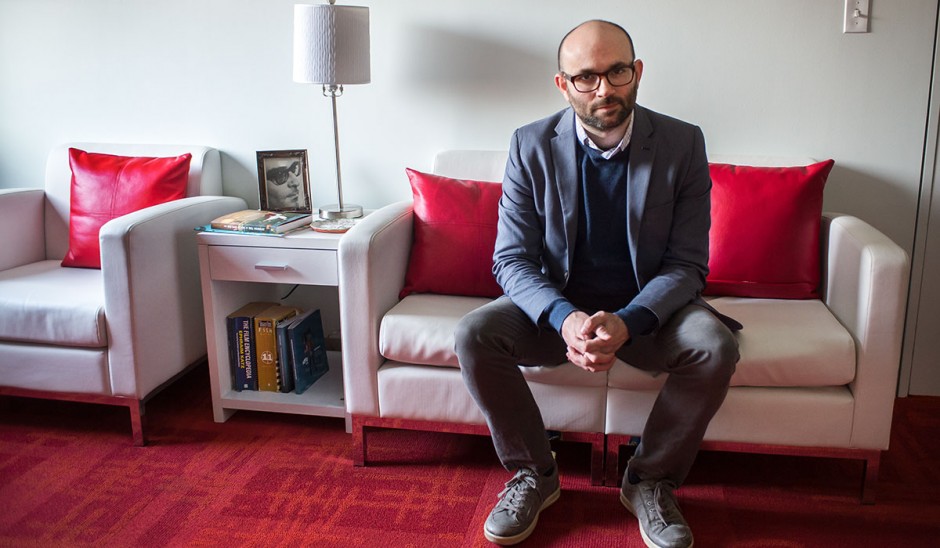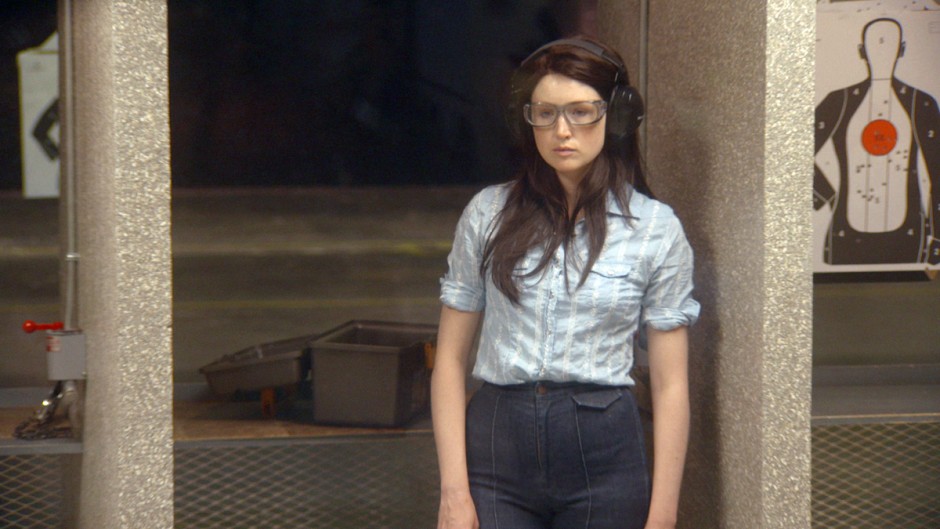
Christine Chubbuck was an accomplished 29-year-old TV reporter when she spoke her last words, on camera, July 15, 1974.
“In keeping with Channel 40’s policy of bringing you the latest in blood and guts, and in living color,” she said as she pulled a revolver from her hand bag. “You are going to see another first — attempted suicide.”
Chubbuck then put the gun to her head and pulled the trigger, killing herself on live TV. The shocked cameraman at the Sarasota, Florida, station instinctively dissolved to black, and the grisly footage mysteriously disappeared for decades.
True and False

Robert Greene, whose official title is filmmaker in chief at MU’s fledgling Jonathan B. Murray Center for Documentary Journalism, first heard of Chubbuck more than 10 years ago. The journalist’s harrowing final days are the subject of Kate Plays Christine, which screens at the True/False Film Fest March 3–6 in Columbia. Greene is the director of the film, which earned him a writing award this January at the Sundance Film Festival.
“I was immediately struck by how horrible and sensational [Chubbuck’s story] was, and the first batch of details you get are insufficient to explain anything,” Greene says. “The nature of the story makes you start to question why you even want to know about the story.”
The film chronicles actress Kate Lyn Sheil, Greene’s longtime friend, as she transforms herself into the troubled Chubbuck and reenacts several episodes in the days leading up to the fateful moment. By blending scenes of Sheil playing Chubbuck with scenes of Sheil “playing” herself, Greene cleverly and unpredictably blurs the lines between nonfiction, fiction and reality.
“My nature is that if I were teaching in an art school, I would be challenging all those orthodoxies of what it means to be teaching in an art school,” Greene says. “The good thing is, in working with my colleagues here at the J-School, the nature of being a journalist is being a skeptic and being able to interrogate your own processes.”
Influencing Future Filmmakers

Greene was recruited in 2014 by Stacey Woelfel, director of the Murray Center, to serve as the in-house filmmaker. The J-School’s famous Missouri Method of learning by doing is a perfect fit for students and Greene, who will continue to make movies while he teaches.
“I have to keep making films — not only for my life, but it’s what makes me valuable,” Greene says. “Stacey is really protective of that for me, which is a dream come true.”
Kate Plays Christine is Greene’s fourth True/False film, joining Kati with an I (2010), Fake it so Real (2012) and Actress (2014).
“True/False is about how, on screen, lines are always blurred,” Greene says. “There’s no more objectivity in documentary. It is always a hybrid of true and false. If you’re not using the form of filmmaking to question the tension between reality and fiction that exists in every single film, not just documentary, then you’re wasting the potential of the medium.”



